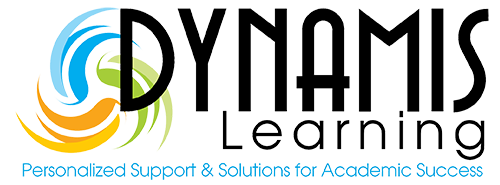Do multiple choice test questions overwhelm your children? During tests, does your child have difficulty with the process of elimination? Is your child about to take a standardized test like the Georgia Milestones, ACT/SAT, and you feel they could use some strategies to score higher?
Multiple choice tests are a popular form of assessment for teachers in the classroom and for many state and nationally normed test makers. In general, students tend to prefer them over other types of tests versus fill-in-the blank, short answer, or essay because the questions they present are objective. Also, standardized tests are typically done in this format, thus they are the most seen by students in general.
 Due to the frequency of this test taking format being used, students need specific skills and strategies to help them be successful when taking multiple-choice tests. They should be aware of answers that are similar and potential distractors within the answer choices as test-makers tend to use those often when developing tests. Thought Co. lists the following tips to increase the chances of the student’s answers being correct.
Due to the frequency of this test taking format being used, students need specific skills and strategies to help them be successful when taking multiple-choice tests. They should be aware of answers that are similar and potential distractors within the answer choices as test-makers tend to use those often when developing tests. Thought Co. lists the following tips to increase the chances of the student’s answers being correct.
Tips for taking multiple-choice tests:
- Read all of the choices: When students attempt to get through a test quickly, they tend to skim the answer choices. Be sure to read the answer choices thoroughly.
- Eliminate wrong choices: Before answering the question, eliminate as many wrong choices as possible. Also, look for possible distractors, words like never, only, or always, as well as opposites like a substitution of -1 and 1, and similarities like conjunctive for subjunctive.
- Note the wordy answers: Often, the choice with the most information is the correct answer. To ensure that the answer choice can’t be disputed, teachers often have to include as much information as possible in the answer choice.
- Make an educated guess: If there’s no penalty for guessing, always make an educated guess.
- Look for the best answer: On multiple-choice tests, because more than one answer choice will technically be correct, choose the one that fits with the stem and in the context of the reading passage or test.
- Pay attention to grammar: Remove any answer that does not fit grammatically with the multiple-choice question. For example, if the test blank requires a singular noun, then any choice with a plural noun will be incorrect. When in doubt, plug the choices into the test question to see if it’s a good fit/makes sense.
- Resist changing your answers a lot: A good rule of thumb is to stick with your answers unless you find new information after going through the test that disproves your answer.
 More strategies for multiple-choice tests
More strategies for multiple-choice tests
When students are preparing to take a multiple-choice test, it’s a good idea that they learn time-management strategies that will help them build confidence going into the exam. Here are some specific things that can help students determine the best answer in the time that they’re given for the test, according to Thought Co.
- With questions that have an all of the above choice, if there are at least two correct statements, most likely the correct answer choice will be ‘all of the above’.
- Usually the correct answer is the one with the most information.
- Keep in mind that one choice may be suitable, however a latter answer choice may be a better fit.
- Choose answer letter ‘B’ or ‘C’ because many instructors subconsciously feel that the correct answer is ‘hidden’ better if it’s surrounded by distractors. Answer letter ‘A’ is the least likely to be the correct one.
- Go over your answers at least once. Check them multiple times if you have the opportunity.
Sometimes multiple-choice tests can be overwhelming, especially on standardized tests like the ACT, SAT or state assessments. These exams demand a high-level of strategy/critical-thinking skills to decipher all that the choices entail. Often times, the choices listed in these tests are very similar, and the student will have to analyze the questions carefully to determine which choice is correct. This can be very time-consuming if a student is not prepared with the skills and strategies specific to each test.
A while ago, a high school junior came to us who was having difficulty taking standardized tests. His parents were concerned because he had just taken the SAT but didn’t get the score that he was hoping for. Additionally, the teen could not finish the test on time, which was a source of anxiety for him. However, after pairing him with an experienced tutor, and enrolling him in one of our bootcamps, not only did the teen finish the SAT on time, but he earned a high score.
 For kids to be successful at test-taking, they need strategies to give them the edge. If your child needs extra support taking tests, our tutors will work with him to understand the problem and create solutions that foster success. If you feel that your child’s struggles might be related to a learning disability or anxiety, talk to your child’s school about the possibilities of getting a 504 plan in place well before a standardized test is taken. A 504 plan can provide accommodations like extended time, small group, a quiet location, and many other possibilities. It’s imperative that you get the process started as soon as possible because it could take several weeks to get approval for these accommodations to be used at testing time. It should be noted that parents should allow 4-5 months before their child starts testing if accommodations are needed.
For kids to be successful at test-taking, they need strategies to give them the edge. If your child needs extra support taking tests, our tutors will work with him to understand the problem and create solutions that foster success. If you feel that your child’s struggles might be related to a learning disability or anxiety, talk to your child’s school about the possibilities of getting a 504 plan in place well before a standardized test is taken. A 504 plan can provide accommodations like extended time, small group, a quiet location, and many other possibilities. It’s imperative that you get the process started as soon as possible because it could take several weeks to get approval for these accommodations to be used at testing time. It should be noted that parents should allow 4-5 months before their child starts testing if accommodations are needed.
 We, at Dynamis Learning Academy, believe in helping find a solution to a child’s academic problems. We work in collaboration with your child’s teacher and school to find out what the teacher sees in the classroom vs what the parent sees at home. Contact owner Helen Panos at helen@dynamislearningacademy.com or at 770-282-9931 to schedule a free consultation about K-12 tutoring, test taking tips, SAT/ACT Prep, online writing workshops, or any other area of academic concern.
We, at Dynamis Learning Academy, believe in helping find a solution to a child’s academic problems. We work in collaboration with your child’s teacher and school to find out what the teacher sees in the classroom vs what the parent sees at home. Contact owner Helen Panos at helen@dynamislearningacademy.com or at 770-282-9931 to schedule a free consultation about K-12 tutoring, test taking tips, SAT/ACT Prep, online writing workshops, or any other area of academic concern.
Helen is an expert educator with over 25 years of experience. She believes in the importance of helping children reach their potential and become well-rounded, intelligent citizens with a positive influence and impact on society. Helen assists parents in accessing the best skills, strategies, tools, and resources to help children be successful and ultimately excel in the world.
Do multiple choice test questions overwhelm your children? During tests, does your child have difficulty with the process of elimination? Is your child about to take a standardized test like the Georgia Milestones, ACT/SAT, and you feel they could use some strategies to score higher?
Multiple choice tests are a popular form of assessment for teachers in the classroom and for many state and nationally normed test makers. In general, students tend to prefer them over other types of tests versus fill-in-the blank, short answer, or essay because the questions they present are objective. Also, standardized tests are typically done in this format, thus they are the most seen by students in general.

Due to the frequency of this test taking format being used, students need specific skills and strategies to help them be successful when taking multiple-choice tests. They should be aware of answers that are similar and potential distractors within the answer choices as test-makers tend to use those often when developing tests. Thought Co. lists the following tips to increase the chances of the student’s answers being correct.
Tips for taking multiple-choice tests:
- Read all of the choices: When students attempt to get through a test quickly, they tend to skim the answer choices. Be sure to read the answer choices thoroughly.
- Eliminate wrong choices: Before answering the question, eliminate as many wrong choices as possible. Also, look for possible distractors, words like never, only, or always, as well as opposites like a substitution of -1 and 1, and similarities like conjunctive for subjunctive.
- Note the wordy answers: Often, the choice with the most information is the correct answer. To ensure that the answer choice can’t be disputed, teachers often have to include as much information as possible in the answer choice.
- Make an educated guess: If there’s no penalty for guessing, always make an educated guess.
- Look for the best answer: On multiple-choice tests, because more than one answer choice will technically be correct, choose the one that fits with the stem and in the context of the reading passage or test.
- Pay attention to grammar: Remove any answer that does not fit grammatically with the multiple-choice question. For example, if the test blank requires a singular noun, then any choice with a plural noun will be incorrect. When in doubt, plug the choices into the test question to see if it’s a good fit/makes sense.
- Resist changing your answers a lot: A good rule of thumb is to stick with your answers unless you find new information after going through the test that disproves your answer.

More strategies for multiple-choice tests
When students are preparing to take a multiple-choice test, it’s a good idea that they learn time-management strategies that will help them build confidence going into the exam. Here are some specific things that can help students determine the best answer in the time that they’re given for the test, according to Thought Co.
- With questions that have an all of the above choice, if there are at least two correct statements, most likely the correct answer choice will be ‘all of the above’.
- Usually the correct answer is the one with the most information.
- Keep in mind that one choice may be suitable, however a latter answer choice may be a better fit.
- Choose answer letter ‘B’ or ‘C’ because many instructors subconsciously feel that the correct answer is ‘hidden’ better if it’s surrounded by distractors. Answer letter ‘A’ is the least likely to be the correct one.
- Go over your answers at least once. Check them multiple times if you have the opportunity.
Sometimes multiple-choice tests can be overwhelming, especially on standardized tests like the ACT, SAT or state assessments. These exams demand a high-level of strategy/critical-thinking skills to decipher all that the choices entail. Often times, the choices listed in these tests are very similar, and the student will have to analyze the questions carefully to determine which choice is correct. This can be very time-consuming if a student is not prepared with the skills and strategies specific to each test.
A while ago, a high school junior came to us who was having difficulty taking standardized tests. His parents were concerned because he had just taken the SAT but didn’t get the score that he was hoping for. Additionally, the teen could not finish the test on time, which was a source of anxiety for him. However, after pairing him with an experienced tutor, and enrolling him in one of our bootcamps, not only did the teen finish the SAT on time, but he earned a high score.

For kids to be successful at test-taking, they need strategies to give them the edge. If your child needs extra support taking tests, our tutors will work with him to understand the problem and create solutions that foster success. If you feel that your child’s struggles might be related to a learning disability or anxiety, talk to your child’s school about the possibilities of getting a 504 plan in place well before a standardized test is taken. A 504 plan can provide accommodations like extended time, small group, a quiet location, and many other possibilities. It’s imperative that you get the process started as soon as possible because it could take several weeks to get approval for these accommodations to be used at testing time. It should be noted that parents should allow 4-5 months before their child starts testing if accommodations are needed.

We, at Dynamis Learning Academy, believe in helping find a solution to a child’s academic problems. We work in collaboration with your child’s teacher and school to find out what the teacher sees in the classroom vs what the parent sees at home. Contact owner Helen Panos at helen@dynamislearningacademy.com or at 770-282-9931 to schedule a free consultation about K-12 tutoring, test taking tips, SAT/ACT Prep, online writing workshops, or any other area of academic concern.
Helen is an expert educator with over 25 years of experience. She believes in the importance of helping children reach their potential and become well-rounded, intelligent citizens with a positive influence and impact on society. Helen assists parents in accessing the best skills, strategies, tools, and resources to help children be successful and ultimately excel in the world.
